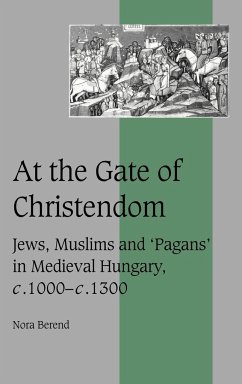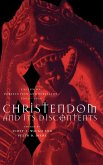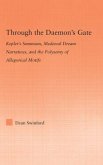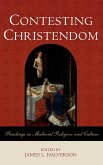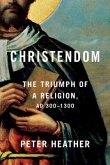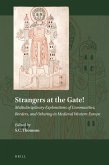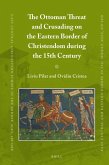Modern life in increasingly heterogeneous societies has directed attention to patterns of interaction, often using a framework of persecution and tolerance. This study of the economic, social, legal and religious position of three minorities (Jews, Muslims, and pagan Turkic nomads) argues that different degrees of exclusion and integration characterised medieval non-Christian status in the medieval Christian kingdom of Hungary between 1000 and 1300. A complex explanation of non-Christian status emerges from the analysis of their economic, social, legal, and religious positions and roles. Existence on the frontier with the nomadic world led to the formulation of a frontier ideology, and to anxiety about Hungary's detachment from Christendom, which affected policies towards non-Christians. The study also succeeds in integrating central European history with the study of the medieval world, while challenging such current concepts in medieval studies as frontier societies, persecution and tolerance, ethnicity, and 'the other'.
Table of contents:
Introduction; 1. Hungary: a frontier society; 2. Christians and non-Christians; 3. The legal position of Hungary's non-Christian population; 4. Non-Christians in Hungarian economy and society; 5. Conflicts between the papacy and the kings; 6. Christian perceptions and attitudes; 7. Non-Christian communities: continuity, transformation, conversion and assimilation; Conclusion; Appendices.
This is a study of the economic, social, legal and religious position of three minorities - Jews, Muslims, and pagan Turkic nomads - within the medieval Christian kingdom of Hungary. It demonstrates that their status depended not simply on Christian religious tenets, and investigates the complex situation 'at the gate of Christendom'.
A study of the status of Jews, Muslims, and pagan Turkic nomads in medieval Hungary.
Hinweis: Dieser Artikel kann nur an eine deutsche Lieferadresse ausgeliefert werden.
Table of contents:
Introduction; 1. Hungary: a frontier society; 2. Christians and non-Christians; 3. The legal position of Hungary's non-Christian population; 4. Non-Christians in Hungarian economy and society; 5. Conflicts between the papacy and the kings; 6. Christian perceptions and attitudes; 7. Non-Christian communities: continuity, transformation, conversion and assimilation; Conclusion; Appendices.
This is a study of the economic, social, legal and religious position of three minorities - Jews, Muslims, and pagan Turkic nomads - within the medieval Christian kingdom of Hungary. It demonstrates that their status depended not simply on Christian religious tenets, and investigates the complex situation 'at the gate of Christendom'.
A study of the status of Jews, Muslims, and pagan Turkic nomads in medieval Hungary.
Hinweis: Dieser Artikel kann nur an eine deutsche Lieferadresse ausgeliefert werden.

